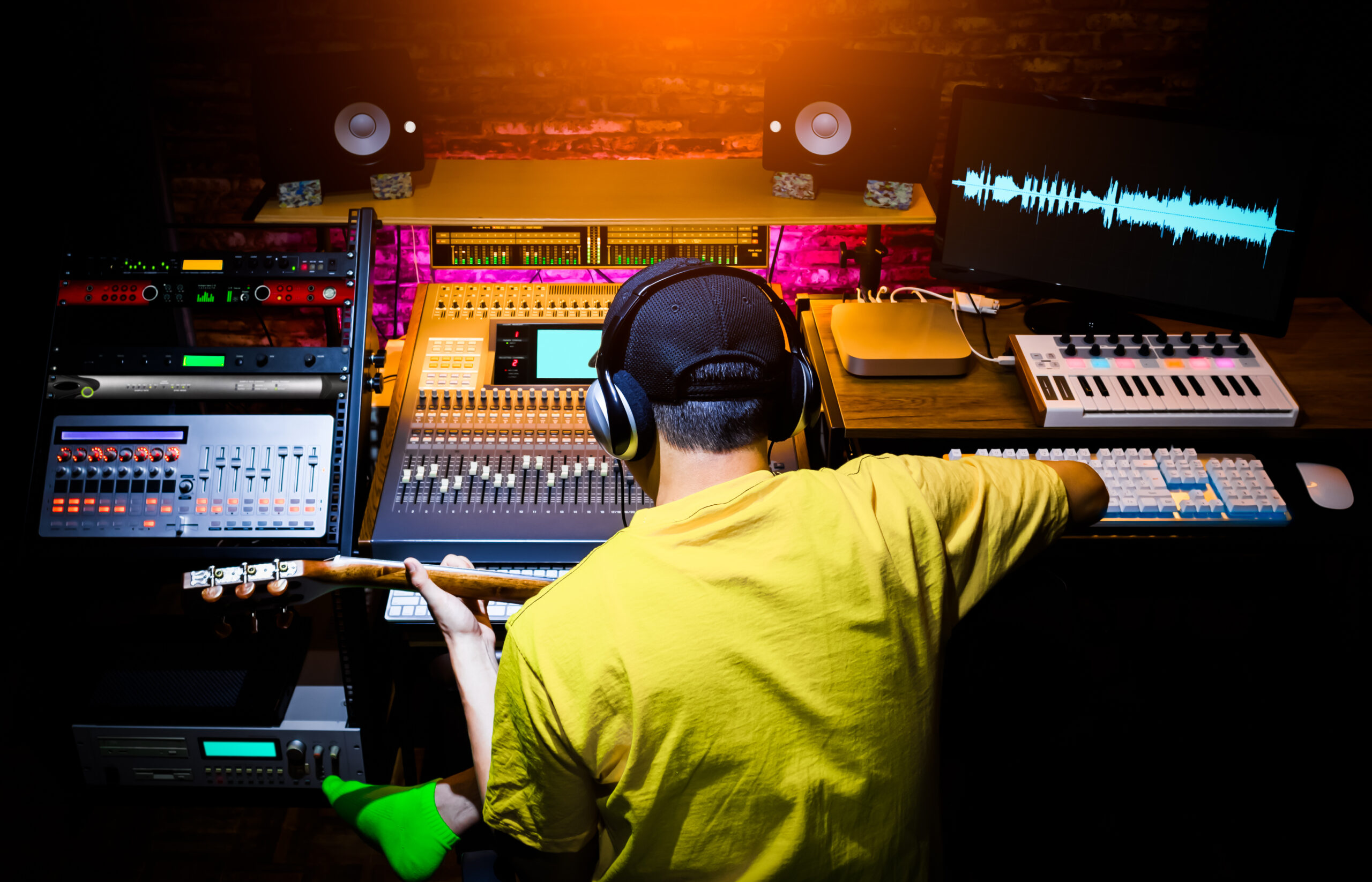How My Passion for Sound Became a Career in Songwriting and Production
If you told me 10 years ago that I’d be writing and producing songs for artists and getting my music placed on shows like Love Is Blind and broadcasts for MLB games, I would’ve been skeptical—but curious. Back then, I was deep in federal law enforcement, wearing a badge as a U.S. Marshal and chasing down fugitives, not melodies. But music? Music was always tugging at me from the background.
What started as a passion for audio engineering—just tweaking EQs, learning compressors, and recording demos—slowly turned into something much bigger. That hobby became the gateway that changed my career, my lifestyle, and honestly, my whole identity.
It All Started With the Sound
Before I ever wrote a hook or produced a track, I was fascinated by the sound of music. I was that guy who would dissect why one song just “hit” and another didn’t. I’d spend hours listening to how drums were mixed, how reverbs were layered, how vocals sat in a track. I wasn’t trying to make hits—I was just trying to understand why the best ones worked so well.
Audio engineering was my rabbit hole. Once I opened up that world, I couldn’t stop exploring. I started learning DAWs, understanding signal chains, building out a home studio piece by piece. What most people saw as knobs and cables, I saw as potential. And slowly, I started creating more than just clean recordings—I started making music.
From Technical to Creative
There’s this point when the lines between engineer and artist start to blur. You go from simply capturing sound to shaping it. You begin tweaking a drum pattern not just for clarity but for emotion. You nudge a vocal forward in the mix because the lyric needs to feel more urgent. That’s when I realized I wasn’t just editing—I was storytelling.
Once I got comfortable with the tools, songwriting followed naturally. Engineering taught me how to listen. Songwriting taught me how to feel.
I’d be tweaking a track and suddenly hear a melody in my head. Then words would come. And before I knew it, I was writing full songs. Sometimes for myself, sometimes for others. But always with that foundation of sonic detail I’d picked up from engineering.
Producing Artists Was a Turning Point
The real shift came when I started working with other artists. Suddenly, I wasn’t just responsible for a beat or a mix—I was helping someone bring their vision to life. That’s a big responsibility, and it’s one I take seriously.
Being a producer isn’t about having all the answers. It’s about asking the right questions. What’s this song really about? What’s the emotion behind it? What do we want people to feel when they hear it? And how do we translate that into sound?
Every session is different. Some artists come in with a clear idea. Others need help digging deep. Either way, I love being in that creative space with them. It’s where technical skill and emotional intuition come together—and that’s the sweet spot.
No Label, No Rules
The beauty of building my career this way—independently, from the ground up—is that I’ve been able to do it on my terms. I’m not chasing trends. I’m not trying to sound like anyone else. I’m creating music that feels honest and real, both for me and the artists I work with.
And it’s working. I’ve had songs placed in shows on Netflix, like Love Is Blind, and in sports broadcasts on the MLB Network. These placements didn’t come from being signed or “discovered.” They came from making high-quality music, pitching it smartly, and being persistent.
Engineering gave me the skill. Songwriting gave me the soul. And production tied it all together into a career.
Lessons I’ve Learned Along the Way
If there’s one thing I’ve learned, it’s that technical knowledge is powerful—but it only takes you so far. The real magic happens when you blend it with emotion, storytelling, and connection.
Here are a few things I keep top of mind:
- Serve the song, not your ego. Whether you’re producing, mixing, or writing—make choices that serve the song, not just your style.
- Less is often more. Especially in sync, clarity and simplicity often win.
- Relationships matter. Every placement, every collaboration—it all starts with human connection.
- Trust your ears. You don’t need a million plugins. You need to listen deeply.
- Stay curious. Technology and trends change fast. Stay open and keep learning.
Looking Back—and Ahead
It’s wild to think how far I’ve come just by following the thread of curiosity that started with audio engineering. It wasn’t some grand plan. I didn’t know it would lead to songwriting and producing. I just kept learning, kept creating, and kept listening to what excited me.
Now, music is my full-time focus, and I’m lucky enough to do it while also supporting artists, working on sync projects, and even building other ventures like a functional medicine clinic with my wife. Life doesn’t always follow a straight path. But when you trust your gut and stay true to your passion, it has a funny way of working out.
If you’re someone sitting in front of your first interface, playing around with EQs and faders—know that it might be more than just a hobby. It might just be your gateway to something bigger.
